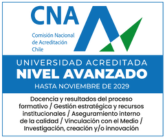Carmona, E.R(a)., Reyes-Díaz, M.(b)(c), Parodi, J.(d), Inostroza-Blancheteau, C.(e).
(a) Antimutagenic evaluation of traditional medicinal plants from South America Peumus boldus and Cryptocarya alba using Drosophila melanogaste.
(b) Departamento de Ciencias Químicas y Recursos Naturales, Facultad de Ingeniería, Ciencias y Administración , Universidad de La Frontera , Temuco , Chile.
(c) Center of Plant, Soil Interaction and Natural Resources Biotechnology, Scientific and Technological Bioresource Nucleus (BIOREN) , Universidad de La Frontera , Temuco , Chile.
(d) Laboratorio Inmuno Parasitología Molecular, Centro de Excelencia en Medicina Traslacional, Departamento Ciencias Preclínicas , Universidad de La Frontera , Temuco , Chile.
(e) Núcleo de Investigación en Producción Alimentaria, Facultad de Recursos Naturales, Escuela de Agronomía , Universidad Católica de Temuco , Temuco , Chile.
JOURNAL OF TOXICOLOGY AND ENVIRONMENTAL HEALTH – PART A: CURRENT ISSUES
Volumen: 80(4) Páginas: 208-217
DOI: https://doi.org/10.1080/15287394.2017.1279574
Fecha de publicación: 17 de marzo de 2017
Abstract
Peumus boldus Mol. («Boldo») and Cryptocarya alba Mol. Looser («Peumo») are medicinal shrubs with wide geographical distribution in South America. Their leaves and fruits are commonly used in traditional medicine because they exhibit natural medicinal properties for treatment of liver disorders and rheumatism. However, there are no apparent data regarding potential protective effects on cellular genetic components. In order to examine potential mutagenic and/or antimutagenic effects of these medicinal plants, the Drosophila melanogaster (D. melanogaster) wing-spot test was employed. This assay detects a wide range of mutational events, including point mutations, deletions, certain types of chromosomal aberrations (nondisjunction), and mitotic recombination. Qualitative and quantitative analyses of phenolic and anthocyanin compounds were carried out using biochemical and high-performance liquid chromatography methodologies. In addition, the antioxidant capacity of P. boldus and C. alba leaf extracts was also analyzed. P. boldus and C. alba extracts did not induce significant mutagenic effects in the D. melanogaster model. However, simultaneous treatment of extracts concurrently with the mutagen ethyl methane sulphonate showed a decrease of mutant spots in somatic cells of D. melanogaster, indicating desmutagenic effects in this in vivo model. Flavonoids and anthocyanins were detected predominantly in the extracts, and these compounds exerted significant antioxidant capacity. The observed antimutagenic effects may be related to the presence of phytochemicals with high antioxidant capacity, such as flavonoids and antohocyanins, in the extracts.



